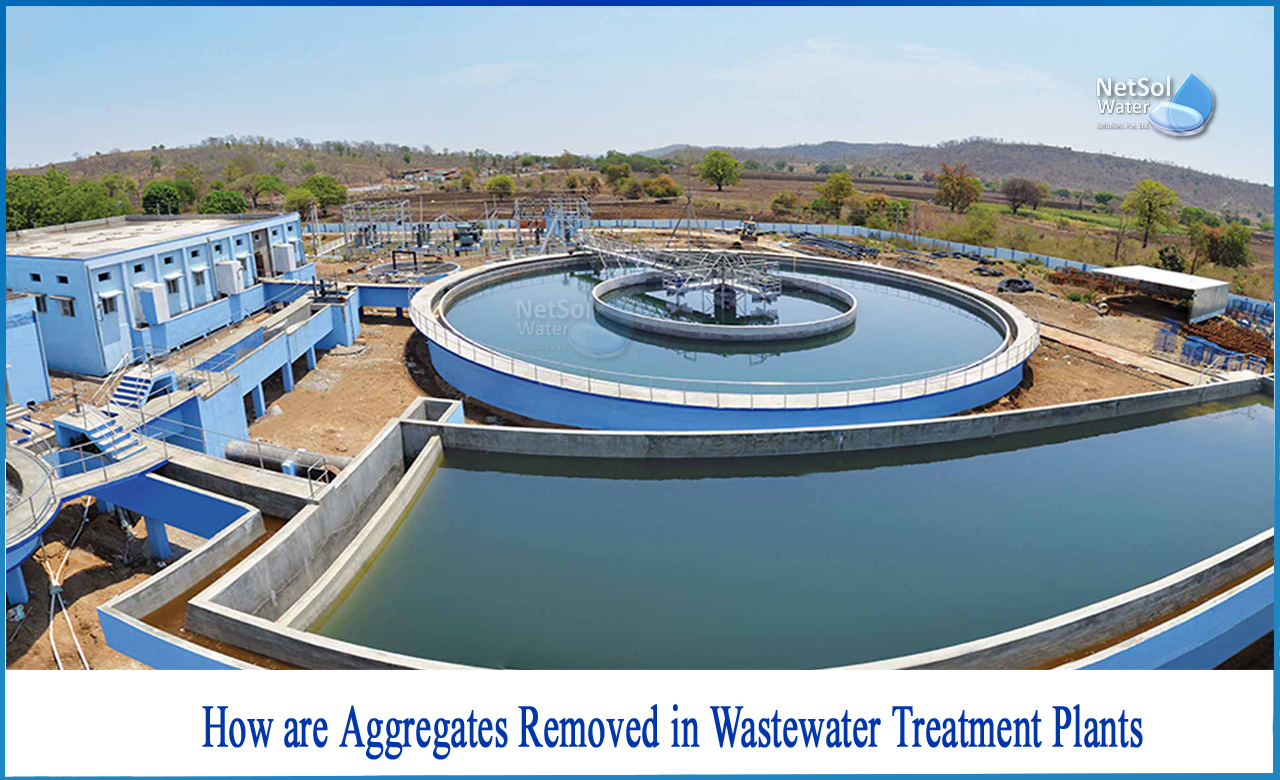How are aggregates removed in wastewater treatment plants?
Because of their uses, aggregates such as gravel and sand must be washed to recover small particles and remove silt that adheres to their surfaces. Typically, sand washing water may be recycled by employing settling ponds in which heavier particles settle and are collected from the bottom to be supplied.
Recovery and storage of these materials, which must eventually be disposed of with excavators, trucks, and workers, incur enormous expenses for the aggregate manufacturing business, due in part to the need to commit a huge area to these activities.
Sand, gravel, expanded clay, vermiculite, and perlite are all examples of aggregates, as is any crushed material utilized in building construction. They are present in composite materials such as cement, bituminous conglomerates, and plasters, chedmical (Limestone, Dolostone, Evaporites) and Clastic sedimentary rocks (Conglomerate, Breccia, Sandstone, Siltstone, Mudstone, Shale), Coal and chert (biological); Intrusive (gabbro, diorite, granodiorite, granite), extrusive (basalt, andesite, dacite, rhyolite), igneous rocks, Foliated metamorphic rocks (Slate, Schist, Gneiss), non-foliated metamorphic rocks (Quartzite, Marble).
Techniques for eliminating aggregates from wastewater treatment plants
Use of Filters
A filter is one of the most ancient and dependable types of dewatering equipment. It is used to treat wastewater in a range of industries and applications. A filter press separates particles from liquids while also eliminating contaminants and suspended materials from industrial wastes. This enables plant managers to conveniently handle and dispose of trash while reintroducing clean water into their systems.
Filter presses are used to separate liquids and solids. The filter press, in particular, uses pressure filtration through a filter medium to separate liquids and solids. The slurry is then fed into the filter press, where it dewaters under pressure.
Use of packaged Plants
If you require a filter press but don't have the room for a huge operation, packed plants are an excellent choice for your facility. These units are designed for small-scale operations. They employ the same concepts as a standard filter press operation and compress them. These plants include a tiny make-up system, a small filter press, and a mud condenser.
A packed plant's setup fits in small places and allows for close looping of the water system. That means you won't have to worry about buying water all the time; instead, you'll be able to recapture it and reuse it in your process.
Other than routine maintenance and cleaning, packaged plants are totally automated and designed with little user involvement. The small size will help to keep your equipment clean and will eliminate any ditches from your activities.
Conclusion
Netsol Water team of water treatment specialists can assist you with a complete water treatment that optimizes your systems. We can do a chemical study of your water to identify the appropriate flocculants, coagulants, and pH balancers to use before mechanical separation. This increases the efficiency of your clarifiers and filter presses, resulting in a more effective and efficient complete water treatment system.
Netsol is a liquid and solid separation expert, with a variety of filter press types and capacities to fulfil unique application demands for trouble-free, cost-effective dewatering.
Netsol Water is Greater Noida-based leading water & wastewater treatment plant manufacturer. We are industry's most demanding company based on client review and work quality. We are known as best commercial RO plant manufacturers, industrial RO plant manufacturer, sewage treatment plant manufacturer, Water Softener Plant Manufacturers and effluent treatment plant manufacturers. Apart from this 24x7 customer support is our USP. Call on +91-9650608473, or write us at enquiry@netsolwater.com for any support, inquiry or product-purchase related query.



